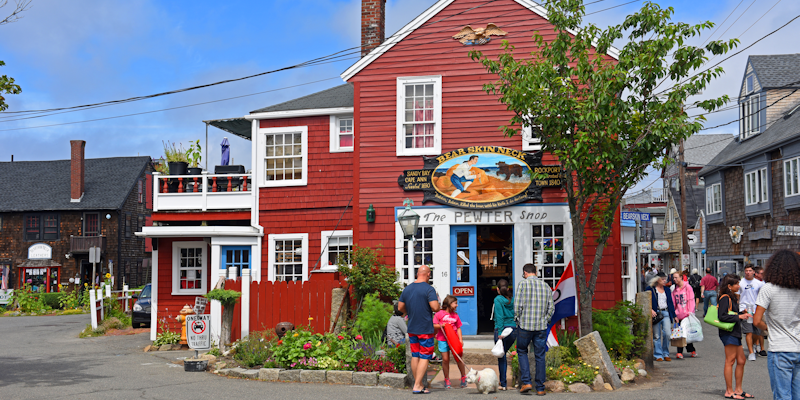The Future Of Massachusetts Hotels After Coronavirus

Resilience & Adaptation In A Post Coronavirus World
The hotel industry, by nature, is particularly susceptible to a variety of disasters. It relies upon physical infrastructure, individual’s ability to travel, and the public perception of safety.
As such, it is no surprise that the coronavirus substantially impacted the hotel industry.

According to the American Hotel and Lodging Association, nearly 4 million jobs will be lost in the hospitality industry and COVID-19 is costing US hoteliers $200 million each day.
It is likely that the aftereffects will be felt for many months to come as fear subsides, the economy recovers, and expendable income levels are restored.
But the hotel industry has proven its historic resilience, in the face of crisis, and we believe that it will utilize this challenge as a springboard to return stronger, more dynamic, and more successful than ever.
Like many other sectors, hotel industry struggles are usually triggered by external stimuli. For example, the last two US collapses were triggered by the September 11th attacks in 2001 and the mortgage crisis and subsequent recession of 2008.
Globally, events such as the 2001 Foot and Mouth Disease outbreak, the 2003 Severe Acute Respiratory Syndrome (SARS) epidemic and a variety of weather events have cost the industry many millions of dollars. But it always recovers.
In the US, the hotel industry just succeeded in an historic rebuild from the Great Recession. From 2009 – 2017, hotel industry annual revenue grew from $116 billion to $185 billion. That is despite the growth of alternative vacation rental sites such as HomeAway and Airbnb, which have gained significant market share during this period.
Although the industry was approaching the end of a 10-year cycle, impressive years in 2018 and 2019 indicated that the industry still had momentum for future economic success.
All traditional American economic indices remained strong: unemployment was low, GDP strong, and tax cuts helped stimulate additional spending. All of this helped fuel continued growth in Average Daily Rates (ADR) and Revenue Per Available Room (RevPAR) in 2018 and 2019.
The outlook for 2020 was already healthy and our hotel, along with many others in Massachusetts were booking up for the summer and fall of this year.
And, then came corona.
The impact of coronavirus on Massachusetts hotels was swift and unrelenting. The first impact of coronavirus that we felt at the Addison Choate in Rockport, Massachusetts was a slowing of summer and fall reservations, which had been coming in at a steady clip throughout the winter.
Then, by mid-March, there was a complete cessation of all new reservations…and then came the cancellations. Within a few days of the National State of Emergency on Friday, March 13th, our March, April and May calendars were decimated.
Larger hotel groups like Hilton are drawing on revolving lines of credit and furloughing workers to remain afloat.
The coronavirus has already claimed its first hotel victim in Boston. The iconic Hotel Buckminster, built in 1897, has announced it’s closing its doors for good. The Kenmore Square landmark will live on in sports notoriety, as it was the location where the plan to throw the 1919 World Series was hatched.
And, this story holds true across the state and beyond. Hotels across the globe have suffered record levels of cancellations and occupancy rates in the single digits.
In Massachusetts, the situation is even more challenging than in other areas of the country. On March 10th Governor Baker declared a State of Emergency in Massachusetts and required all businesses that do not provide “COVID-19 Essential Services” to close their physical locations.
While hotels were initially included as “essential services” they were removed from the list in his updated order on March 31, 2020. This has basically eliminated all short-term hotel revenue.
Here at Addison Choate, we have had to forego revenue from multiple reservations to comply with this edict. A challenging decision, but one that we believed was the right thing to do in the face of this crisis.
But even worse than lost revenue, is the fate of all of the hotel workers, restaurant staff, bartenders and cleaning companies that rely on hotel revenue and are now unemployed. The unemployment figures in Massachusetts are absolutely staggering.
In just the hotel industry alone approximately 70,000 of the 163,000 hotel workers in the Commonwealth have lost their jobs.
According to the Executive Office of Labor and Workforce Development (EOL) between March 15th and 21st, almost 150,000 people filed for unemployment insurance in Massachusetts. That represents an increase of 1,904% over the previous week.
Tourism is kind of a big deal in Massachusetts. It’s actually the third largest industry in the state.
The ease of access, abundance of history, stunning coastline, iconic events, top tier universities, and legendary sports franchise are all huge draws. Boston’s Logan International Airport serves as the perfect funnel, operating direct air service to and from 77 domestic and 56 international destinations.

In 2018 the Commonwealth welcomed 31 million domestic and international travelers. These travelers generated $24.2 billion in revenue, supported over 153,000 jobs, helped fund $5.6 billion in wages and generated over $1.6 billion for the Commonwealth’s coffers.
As demand for rooms outpaces total room volume in Massachusetts, we have seen new hotel growth and development across the Commonwealth. Many new projects continue in the wake of coronavirus, but many hotel acquisitions and negotiations have been put on hold during the pandemic.
We have complete faith that the hotel industry will rebuild as the country recovers from the coronavirus and associated media coverage slows. There have been a number of internal and external initiatives which have been launched to support the industry and other small businesses and their employees.
Lenders have added loan deferral and forbearance programs, the SBA and federal government have launched a variety of initiatives through the new CARES Act, and local community leaders have created funds to support terminated and furloughed workers.
Throughout the industry we have seen some impressive leadership. Arne Sorenson, CEO of Marriot, along with Chairman Bill Marriott are foregoing salaries for the remainder of 2020 and the Executive team is going to cut their salaries by 50% to help weather this storm.
More of this activity will follow and we believe the industry will become even stronger because of this crisis.
As we move forward, the hotel industry will certainly learn from the coronavirus outbreak. There will be additional business fatalities as travel volume slowly comes back to pre-corona levels.
We anticipate the industry adapting to become leaner and more efficient and we expect to see additional diversification within the business models to help protect businesses from the economic impacts of disasters such as this one.
Historically, diversification within the industry has meant diversification within the industry itself such as geographic or brand and class offering diversity.
The most logical first step might seem to be additional industry consolidation with more horizontal integration such as Marriot’s $13 billion acquisition of Starwood Hotels and Resorts Worldwide. These economies of scale are certainly helpful tools in improving profitability and maintaining economic viability in the face of crisis.
However, we believe that successful hotel brands will also diversify into a variety of different sectors to help decrease the risks that are inherent in its reliance on physical structure, individual’s ability to travel and their perceptions of safety.
A more flexible business models with a variety of holdings will help industry leaders remain on solid financial ground moving forward.